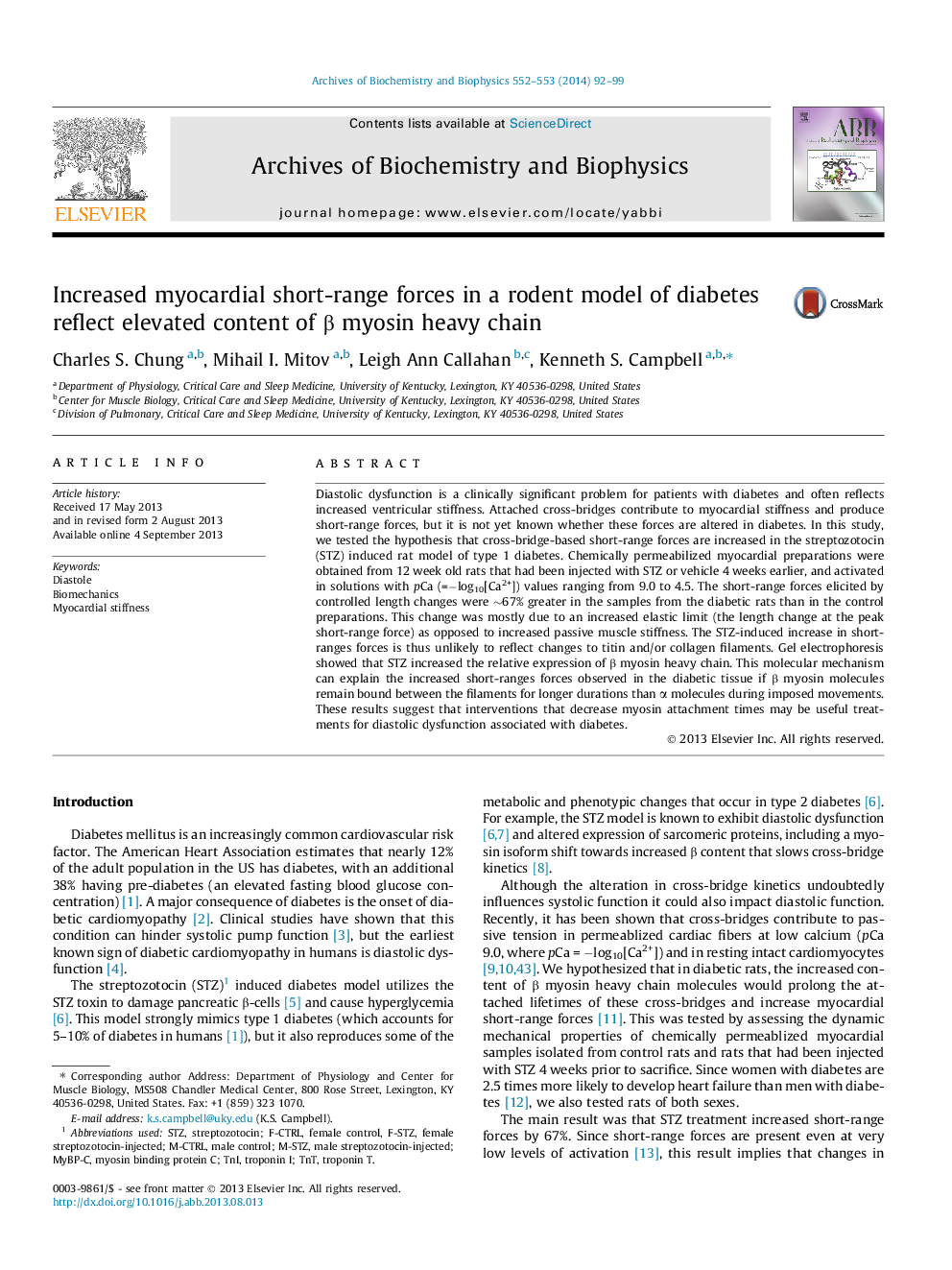| Article ID | Journal | Published Year | Pages | File Type |
|---|---|---|---|---|
| 1925187 | Archives of Biochemistry and Biophysics | 2014 | 8 Pages |
•Diabetes is associated with diastolic dysfunction.•We studied myocardial stiffness in a rat model of diabetes.•Short-range force, a cross-bridge based property, is increased in diabetic hearts.•An increase in β myosin heavy chain isoform expression is the likely mechanism.
Diastolic dysfunction is a clinically significant problem for patients with diabetes and often reflects increased ventricular stiffness. Attached cross-bridges contribute to myocardial stiffness and produce short-range forces, but it is not yet known whether these forces are altered in diabetes. In this study, we tested the hypothesis that cross-bridge-based short-range forces are increased in the streptozotocin (STZ) induced rat model of type 1 diabetes. Chemically permeabilized myocardial preparations were obtained from 12 week old rats that had been injected with STZ or vehicle 4 weeks earlier, and activated in solutions with pCa (=−log10[Ca2+]) values ranging from 9.0 to 4.5. The short-range forces elicited by controlled length changes were ∼67% greater in the samples from the diabetic rats than in the control preparations. This change was mostly due to an increased elastic limit (the length change at the peak short-range force) as opposed to increased passive muscle stiffness. The STZ-induced increase in short-ranges forces is thus unlikely to reflect changes to titin and/or collagen filaments. Gel electrophoresis showed that STZ increased the relative expression of β myosin heavy chain. This molecular mechanism can explain the increased short-ranges forces observed in the diabetic tissue if β myosin molecules remain bound between the filaments for longer durations than α molecules during imposed movements. These results suggest that interventions that decrease myosin attachment times may be useful treatments for diastolic dysfunction associated with diabetes.
